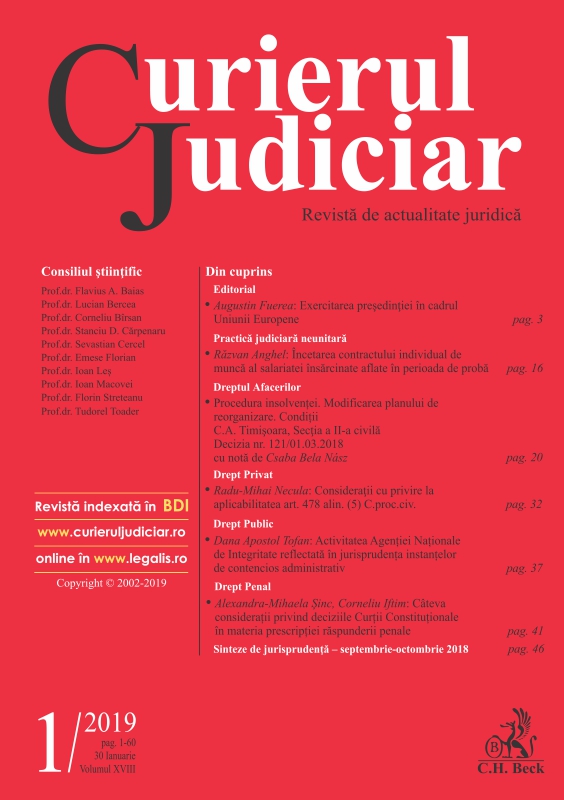Economia colaborativă și cadrul normativ aplicabil: de la simplă contestare la necesitatea unei construcții juridice alternative
Collaborative economy and applicable legal framework: from mere challenge to the need for an alternative legal construction
Author(s): Ana-Maria VlăsceanuSubject(s): Law, Constitution, Jurisprudence, Law on Economics
Published by: C.H. Beck Publishing House - Romania
Keywords: collaborative economy; legal framework; digital platform; workers;
Summary/Abstract: Digital platform companies (e.g. Uber, AirBnB, TaskRabbit etc.) are the front-runners of a new economy, called gig economy and more often collaborative economy. Digital platforms have dramatically reduced transaction costs, increased economic efficiency, challenged classical industries, and changed many companies’ profiles. In such a context, a key question is: what would be the legal implications of such industrial and economic changes? This article attempts to answer this question by exploring the changes brought about by the collaborative economy with special regard to work relations and their demands for the exploration of new developments into the logic of current legal framework. Three alternatives of economic regulation are compared: a) reliance on classical regulatory systems; b) development of a mix-approach which combines actual with new regulations, tailored to address the specificities of the collaborative economy; c) the need to develop a specific regulatory system for an economy based on the digital platforms technology.
Journal: Curierul judiciar
- Issue Year: 2019
- Issue No: 01
- Page Range: 24-31
- Page Count: 8
- Language: Romanian
- Content File-PDF

